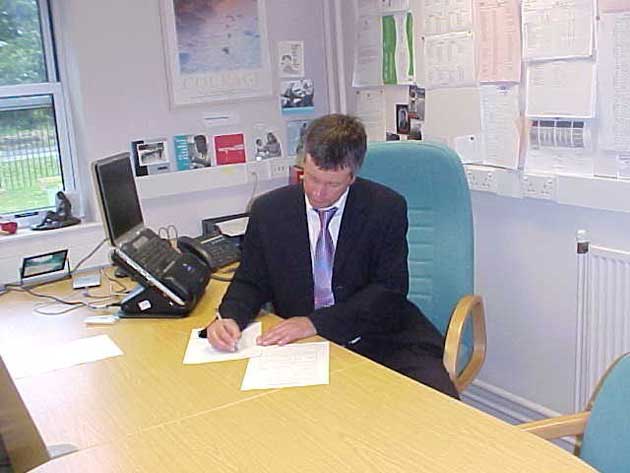Wealth Check: 'I want to get back into the property market – is that totally insane?'

Your support helps us to tell the story
From reproductive rights to climate change to Big Tech, The Independent is on the ground when the story is developing. Whether it's investigating the financials of Elon Musk's pro-Trump PAC or producing our latest documentary, 'The A Word', which shines a light on the American women fighting for reproductive rights, we know how important it is to parse out the facts from the messaging.
At such a critical moment in US history, we need reporters on the ground. Your donation allows us to keep sending journalists to speak to both sides of the story.
The Independent is trusted by Americans across the entire political spectrum. And unlike many other quality news outlets, we choose not to lock Americans out of our reporting and analysis with paywalls. We believe quality journalism should be available to everyone, paid for by those who can afford it.
Your support makes all the difference.Jack Heal is the headteacher of a special-needs school in Essex. He has paid off the mortgage on his family home, but after separating from his partner he is now renting, and is looking to get back into the property market. Given the volatile economic conditions, he is keen for advice on whether now would be a good time to buy. He owns another property in London, which he sub-lets. Jack has supported two of his children through university and is looking forward to the extra financial freedom afforded by their growing up.
Case notes
Jack Heal, 51, Essex
Income: £65,000 a year.
Monthly spending: £625 a month on mortgage; £1,600 on food, petrol, etc.
Debts: No debts.
Savings: No savings.
Property: Has paid off his home mortgage, and sub-lets out a mortgaged apartment.
Pensions: Pays £188 a month into a stakeholders pension plan, and also belongs to a teacher's pension plan.
We asked three advisers to assess his situation: Ajmer Somal from Positive Solutions, Matthew Woodbridge from Chelsea Financial Services and Adrian Kidd, an independent adviser...
Mortgage
Jack would like to re-enter the housing market, but is uneasy. Woodbridge expresses worries over the likelihood of Jack getting a full mortgage on another property. "Lenders have become very strict about lending money to consumers, particularly in respect of mortgages," he says. "Indeed, most of the UK's lenders no longer offer 100 per cent mortgages."
Kidd, however, believes that, because of Jack's higher income, he should have no problem getting a large loan. Kidd says that, with a 10 per cent deposit, a mortgage of around £227,500 could be arranged. Somal agrees, assuring Jack that if he has a good credit history he should "not have too much difficulty in acquiring a mortgage from a bank or building society in 18 to 24 months' time". However, Somal urges Jack to check his credit record to ensure it is in good shape.
All the advisers agree that the outlook for the property market is uncertain. However, Kidd says that if Jack finds somewhere that he really loves and that he is willing to keep for several years, it's still worth putting in an offer. "It's a buyers' market, so putting in an offer of 10 or 20 per cent below asking price, with a pre-agreed mortgage, would put you in a strong position," he says. However, Jack may need to wait, as he does not currently have a large enough deposit.
Saving
Despite Jack's earnings, he has few savings. Woodbridge suggests that, because of the tight mortgage market, Jack needs to build up a large deposit. "In addition to a deposit, he needs to save for the other costs of buying a home," he says. "He will also need a cash buffer of around three months' salary for any other emergencies."
Somal advises that Jack wait at least two years to buy a property, giving him enough time to save for a deposit. He recommends that Jack make full use of his cash ISA allowance of £3,600 each tax year. Woodbridge adds: "One of the best current rates is from Barclays, which offers 6.08 per cent gross (including 1 per cent bonus for 12 months). This cash ISA also provides instant access, so Jack won't be penalised should he need access to his money."
Kidd believes that Jack should also consider putting some of his savings into the stock market. However, Jack says he has a very low appetite for risk. Kidd suggests talking to a financial adviser about why he is so cautious, as he says Jack could build up savings at a much greater rate if he is willing to take on a small amount of risk.
Pension
Jack is unsure about how much he pays into his employer's pension. But the advisers believe that, as a teacher, he is likely to be a member of a final salary pension scheme, and should be on course to receive a generous income in retirement. He makes additional voluntary contributions (AVCs) into a Scottish Widows stakeholder pension, which Woodbridge commends as a very tax-efficient way to save. (Kidd believes that given the more urgent priority of saving for a deposit, Jack may want to think about stopping his AVCs.)
Jack says he is aiming to have an annual income of £25,000 in retirement, and he plans to stop working when he reaches 65. All the advisers believe that Jack is well on track to achieve this.
Protection
As Jack's children have grown up, he no longer feels that he needs life insurance. However, Woodbridge and Somal believe that Jack should consider buying critical illness cover or income protection, which would pay 60 to 70 per cent of earnings after a period of absence from work. However, this can be very expensive, and Woodbridge stresses that saving remains more important.
Join our commenting forum
Join thought-provoking conversations, follow other Independent readers and see their replies
Comments